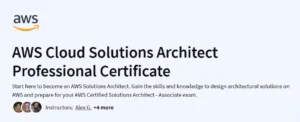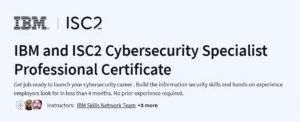What will you learn in Learn C# Course
Master C# fundamentals: types, control flow, classes, and error handling
Leverage object-oriented principles: inheritance, interfaces, polymorphism, and encapsulation
Work with collections, LINQ queries, and asynchronous programming with
async/await
Build and structure real-world applications using .NET Core, dependency injection, and configuration
Debug, test, and deploy C# applications, including unit testing with xUnit and NuGet packaging
Program Overview
Module 1: C# Language Basics
⏳ 1 week
Topics: Primitive types, variables, operators,
if/switch, loops (for,while)Hands-on: Write console programs to perform calculations and control-flow exercises
Module 2: Methods, Error Handling & Debugging
⏳ 1 week
Topics: Method signatures, overloads, exception types,
try/catch/finally, debugger toolsHands-on: Implement reusable methods and introduce error handling in sample apps
Module 3: Classes & Object-Oriented Design
⏳ 1 week
Topics: Defining classes and structs, properties, constructors, access modifiers
Hands-on: Model a domain (e.g., inventory system) with classes and test object interactions
Module 4: Inheritance, Interfaces & Polymorphism
⏳ 1 week
Topics: Base vs. derived classes, abstract classes, interface contracts, virtual/override methods
Hands-on: Extend a base
Animalclass and implement multiple behaviors via interfaces
Module 5: Collections & LINQ
⏳ 1 week
Topics: Arrays,
List<T>, dictionaries, querying with LINQ methods and query syntaxHands-on: Manipulate and query sample datasets (e.g., customer orders) using LINQ
Module 6: Asynchronous Programming
⏳ 1 week
Topics:
Taskvs.Task<T>,async/await,CancellationToken, parallel loopsHands-on: Build an HTTP client that fetches data concurrently and handles cancellations
Module 7: .NET Core & Dependency Injection
⏳ 1 week
Topics: Project templates,
appsettings.json, built-in DI container, service lifetimesHands-on: Scaffold a minimal Web API and wire up services via constructor injection
Module 8: Testing & Packaging
⏳ 1 week
Topics: Unit testing with xUnit, mocking with Moq, creating and publishing NuGet packages
Hands-on: Write tests for business logic and publish a utility library to a local feed
Module 9: Capstone Project – Complete .NET Core App
⏳ 2 weeks
Topics: End-to-end design: API, data layer, UI (e.g., Blazor), logging and configuration
Hands-on: Deliver a full-stack sample—backend API, simple frontend, CI/CD pipeline
Get certificate
Job Outlook
C# developers are in high demand for backend, desktop, and game development (Unity) roles
Positions include .NET Developer, Software Engineer, Full-Stack .NET Engineer, and Unity Programmer
Salaries range from $80,000 to $140,000+ depending on experience and region
Mastery of C#, .NET Core, and modern practices opens doors to enterprise projects, microservices, and cross-platform apps
Specification: Learn C#
|
FAQs
- No prior programming experience is required; the course is beginner-friendly.
- It starts with basic programming concepts like variables, loops, and conditions.
- Step-by-step exercises help learners understand syntax and logic in C.
- Basic computer literacy is sufficient to follow the lessons.
- By the end, learners can write functional C programs and understand core programming principles.
- Yes, the course covers defining and using functions effectively.
- Learners practice passing parameters, returning values, and organizing code modularly.
- Concepts include local vs global variables and scope management.
- Hands-on exercises reinforce understanding of modular programming techniques.
- Advanced function concepts like recursion and function pointers may require additional practice.
- Yes, the course teaches using arrays for collections of data and strings for text manipulation.
- Structures are introduced to group related data into single entities.
- Learners practice iterating, sorting, and manipulating arrays and strings.
- Hands-on exercises demonstrate practical use cases for structures in programs.
- More advanced data structures may require additional study.
- Yes, the course introduces pointers, referencing, and dereferencing.
- Learners practice pointer arithmetic, dynamic memory allocation, and accessing array elements.
- Concepts include stack vs heap memory and basic memory management techniques.
- Hands-on exercises ensure learners understand memory handling and efficiency.
- Advanced pointer usage and optimization may require further practice.
- Yes, the course equips learners with foundational C programming skills.
- Hands-on exercises and practice problems simulate real-world coding scenarios.
- Concepts cover both beginner and intermediate topics frequently asked in interviews.
- Learners can build small projects to showcase understanding of C.
- Advanced interview questions may require additional problem-solving practice.





